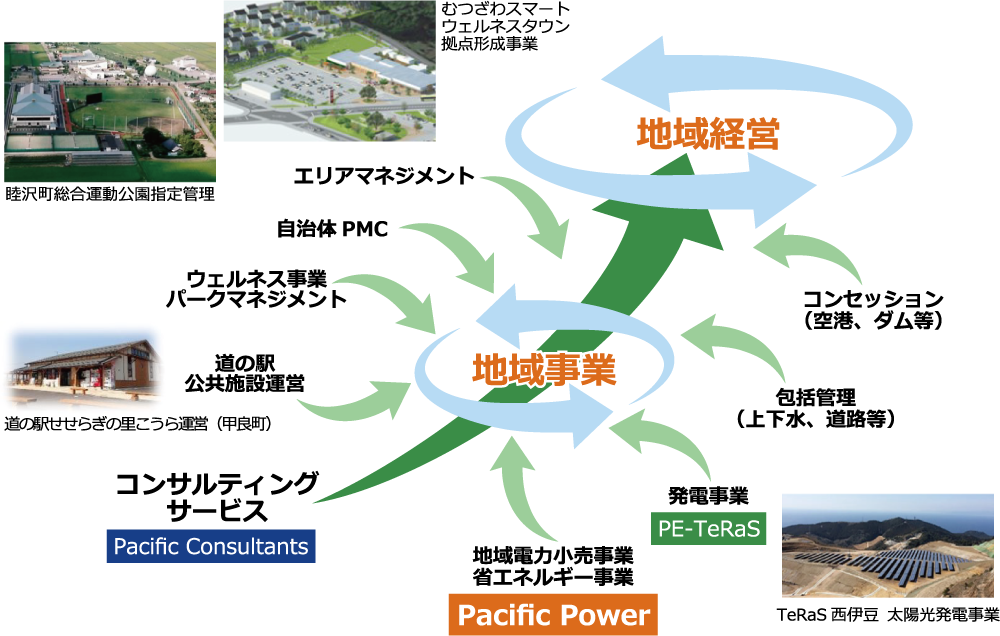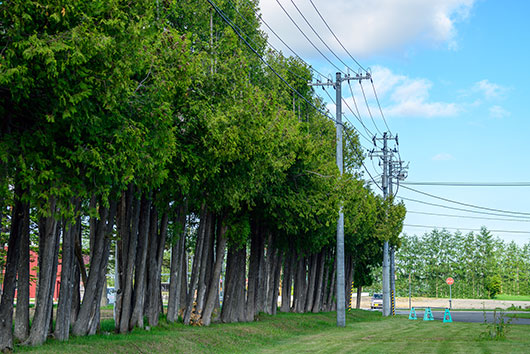Many local governments have declared themselves zero-carbon cities, and efforts toward decarbonization and carbon neutrality are being made through energy conservation, electrification, decarbonization of power sources, and low-carbonization of other energy sources. There are now Municipal Power Producers and Suppliers (PPS) companies in which approximately 80 local governments have invested, known as "Municipal Power Producers and Suppliers (PPS)," across the country.
Why go to the trouble of establishment a Municipal Power Producers and Suppliers (PPS) company to tackle carbon dioxide emissions in the region? What are the real benefits expected from establishment such company? What should you keep in mind when actually establishing and running such company?
PACIFIC CONSULTANTS GROUP has Pacific Power Co., Ltd. under its umbrella, which is involved in Municipal Power Producers and Suppliers (PPS) business. The author, who is currently on secondment to the company, will use his actual business operation experience to explain the potential of Municipal Power Producers and Suppliers (PPS) businesses and the key points for their establishment and operation.
In the first part, the author discusses what he believes to be the "essential value" of Municipal Power Producers and Suppliers (PPS), taking into account the "significance of Establishment of Power Producers and Suppliers (PPS)" and "the effects that have been achieved through Municipal Power Producers and Suppliers (PPS)."
Building on the first part, in the second part we will explain the "key points for introducing and operating Municipal Power Producers and Suppliers (PPS)" and the future vision for Municipal Power Producers and Suppliers (PPS).
INDEX
- Key points for introducing and operating Municipal Power Producers and Suppliers (PPS) for local governments
- Future vision of the Municipal Power Producers and Suppliers (PPS) scheme = Area management
Key points for introducing and operating Municipal Power Producers and Suppliers (PPS) for local governments
1. Supporting local governments in clarifying and sharing their policy objectives
When a Municipal Power Producers and Suppliers (PPS) is established, the first step is to enter into supply and demand contracts for retail electricity business with each public facility. However, this requires coordination with the financial department and facility management department, not the policy department that is responsible for establishment of the Municipal Power Producers and Suppliers (PPS), and it becomes necessary to have these on-site departments understand the policy objectives of the Municipal Power Producers and Suppliers (PPS). This is also true when conducting business other than retail electricity business, and whether or not there is a common understanding within the city hall about the position of the Municipal Power Producers and Suppliers (PPS) will have a major impact on the operation of the Municipal Power Producers and Suppliers (PPS). Similarly, they must be able to provide a reasonable explanation to citizens and the assembly as to why the Municipal Power Producers and Suppliers (PPS) must be the one to carry out the business.
The key to this is to carefully explain how Municipal Power Producers and Suppliers (PPS) companies will produce a wide range of benefits, including decarbonization, and to devise an explanation that takes into account the effects and benefits in a way that is most convincing to local departments, citizens, and the assembly. In particular, it is important to explain that Municipal Power Producers and Suppliers (PPS) will be responsible for dealing with areas that cannot be fully addressed by the private sector's methods of outsourcing through bidding and proposals, as has been used by government in the past.
Furthermore, if the word "decarbonization" is used first, there is a high possibility that coordination with the field, where the benefits are not fully seen through that word alone, will not proceed smoothly. From past experience, it can be more effective to explain that the measures to solve various local issues will ultimately lead to decarbonization.
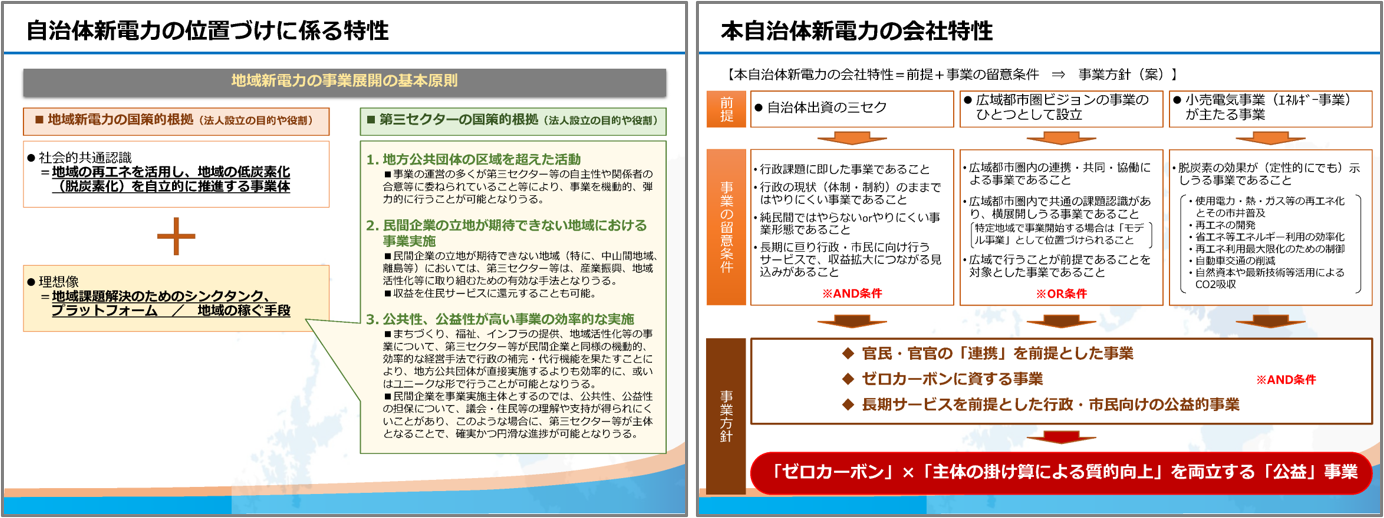
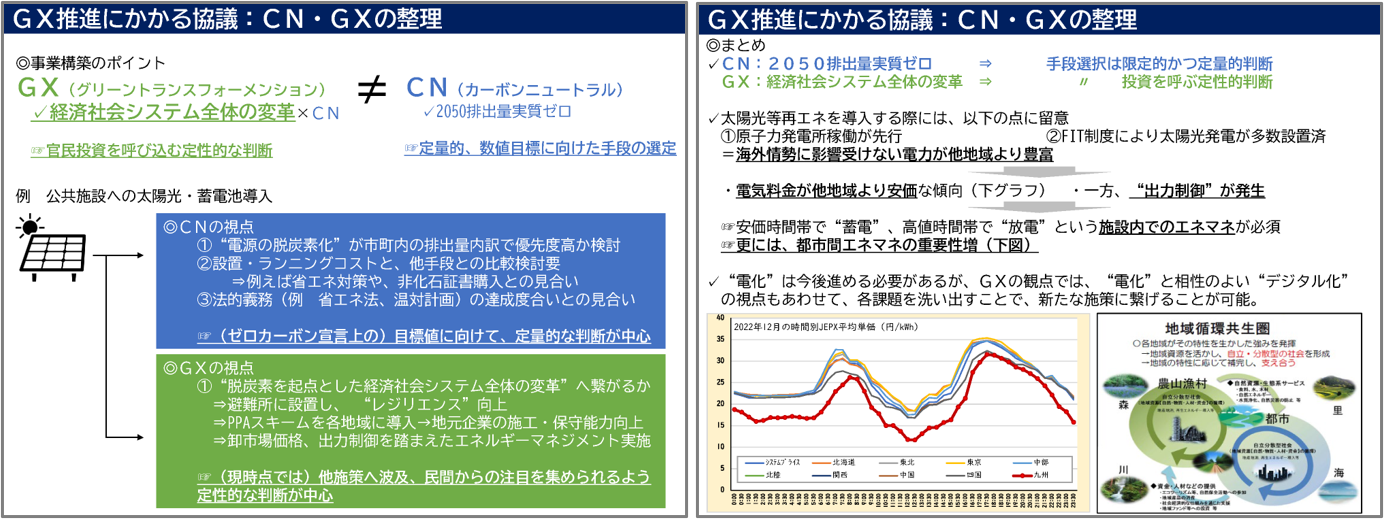
2. Make it a common understanding between the public and private sectors that it is a profitable business
There are many cases where local governments have the expectation that "if we establishing Municipal Power Producers and Suppliers (PPS), we can achieve anything." When looking at the plans adopted by decarbonization pioneering regions, the impression that "consideration of Municipal Power Producers and Suppliers (PPS)" is written is given based on such expectations, which makes me feel unsafe.
In the first place, renewable energy introduction projects receive many subsidies, including FIT (Feed-in tariff), and without these subsidies, it would be difficult to make the project profitable. There is a limit to the scope of what can be established as a "profitable business," so it is important for the public and private sectors to have a mutual understanding that not everything can be carried out based on "passion" alone.
Additionally, in order to simultaneously consider linking it with policy and it being a "project," we believe it is also important for local governments to ensure coordination between the department in charge of "projects" and the department in charge of "policy" within the administration.
3. Make it a common understanding between the public and private sectors that "energy business is a long-term business"
Since the retail electricity business is, after all, "retail," the basis is small profits and high volume sales. Furthermore, since the electricity sales customers of Municipal Power Producers and Suppliers (PPS) are mainly public entities, the scope of high volume sales is also limited. While it is possible to approach local businesses for sales, there is always the argument that this would "suppress private businesses," so the principle is to aim for maximum public benefit within the limited amount of investment that can be made.
The introduction of renewable energy projects has a long project period of 10 to 20 years, so it is necessary to take into consideration personnel transfers between parties, and approval procedures are also an important factor for administrative agencies. Therefore, it is necessary to pay attention to detailed cash flow plans, the establishment of asset management systems, and forward-looking public relations within the local government.
4. Value building a cooperative relationship with local companies
When a Municipal Power Producers and Suppliers (PPS) acquires assets, it is important to establish a continuous management system. In order to ensure smooth communication with local residents during the project period and to respond immediately when problems arise, the help of local companies is essential.
We also consider collaboration with local companies to be essential for the comprehensive management of roads and sewerage systems that we undertake in other regions. This is made possible by the combination of our consulting and the on-site response of local companies, and we consider this to be an important perspective in advancing our business.
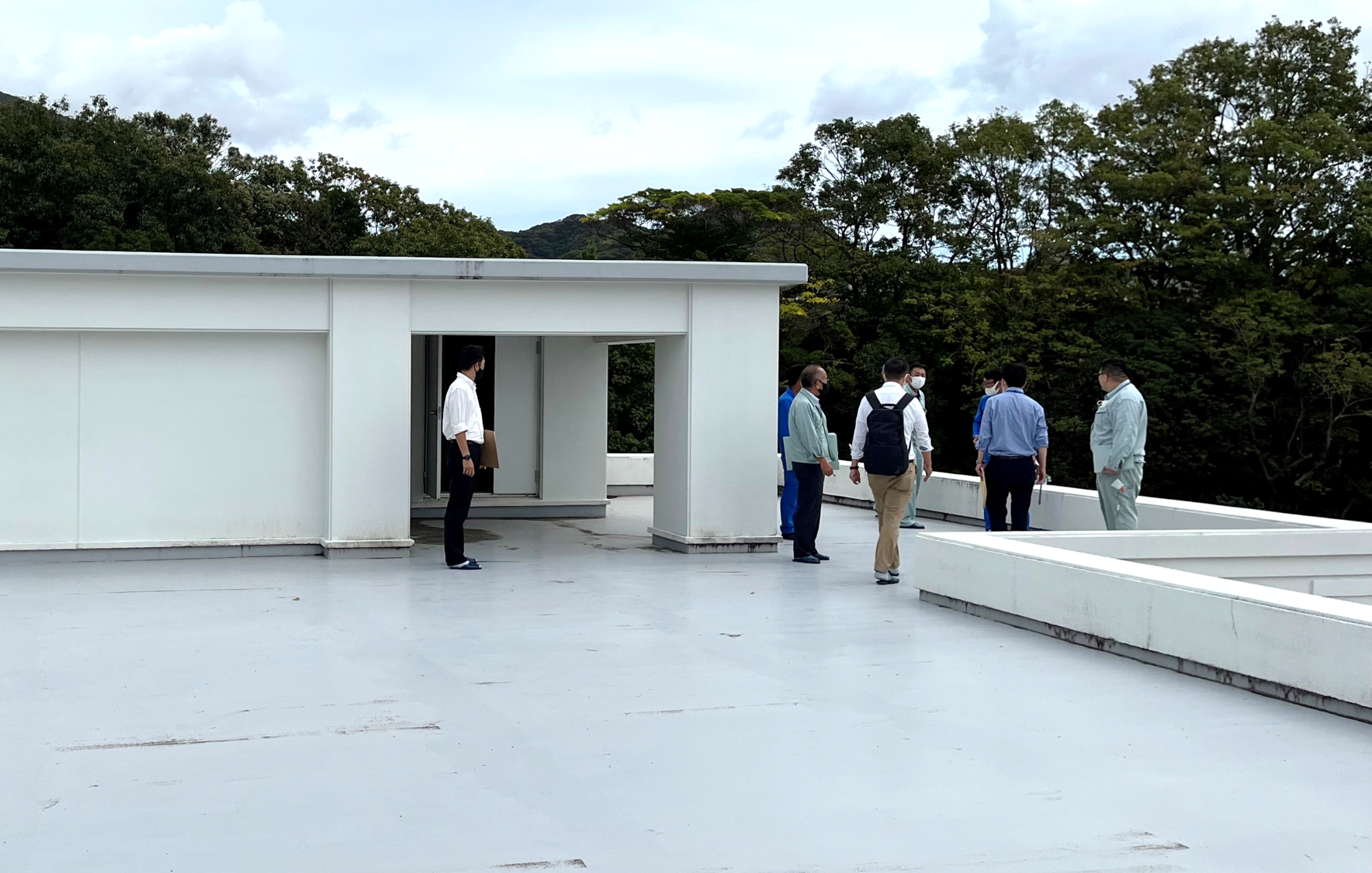
Future vision of the Municipal Power Producers and Suppliers (PPS) scheme = Area management
1. The next step for Municipal Power Producers and Suppliers (PPS) companies
We believe that Municipal Power Producers and Suppliers (PPS) companies can also be the carriers of businesses that contribute to "administrative management." In a broad sense, what Municipal Power Producers and Suppliers (PPS) are doing in the retail electricity business is to "improve effectiveness by taking what has previously been handled individually by each administrative department and dealing with it across departments and devising comprehensive solutions." Local governments are often structured in a vertical manner that makes it difficult for collaboration between fields, but because Municipal Power Producers and Suppliers (PPS) exist as external organizations to local governments, we are considering whether they can provide a cross-sectional approach to local government functions.
In the infrastructure field, which is our main business, we are also working on comprehensive road management in Sanjo City, Niigata Prefecture, and comprehensive sewerage management in Fuji City, Shizuoka Prefecture, as representative examples. We are considering whether we can expand the business of Municipal Power Producers and Suppliers (PPS) by taking a similar approach.

From this perspective, as an example, we are also trying out comprehensive management of neighborhood association-managed security lights, as shown in Figure 3. Until now, many neighborhood associations have been individually updating security lights that have burned out, and the local government has been subsidizing the costs individually. In this case, by having the Municipal Power Producers and Suppliers (PPS) company act as an intermediary between the local government and the neighborhood association, we have been able to centralize the procurement of materials and the ordering of construction work, thereby reducing costs and reducing the burden on each party. Furthermore, we have built an efficient and rapid management system by converting the location information of security lights into map data and collaborating with the local business association on construction work. It is possible for the local business association to act as an intermediary between the local government and the neighborhood association, but the association organization is not a type that raises funds. We recognize that the role of the Municipal Power Producers and Suppliers (PPS) is expected to be the function of securing and managing "funds" as mentioned in the previous article, and the role of organizing the entire system, including converting information into data.
2. Development of Municipal Power Producers and Suppliers (PPS) schemes
It is clear that Municipal Power Producers and Suppliers (PPS) companies are useful for developing businesses such as local production and consumption of energy. However, preparations for profitable businesses, including retail electricity businesses, require a great deal of coordination, and are not a business that can be advanced overnight. In this context, the most important aspect is to achieve a common understanding among citizens, the assembly, and the city hall regarding the future vision that wants to realize the Municipal Power Producers and Suppliers (PPS) established and operated. If this can be agreed upon, it will be possible to move the business forward quickly.
We would like to expand the "administrative management" efforts of Municipal Power Producers and Suppliers (PPS) companies and our comprehensive management of roads and sewerage systems, and by linking these together as a group, we aim to realize "regional management."
In addition, a system like that of a Municipal Power Producers and Suppliers (PPS) could also be used for area management in urban areas, for example. We are considering whether it would be possible to establish an area management organization among various landowners and building owners, and use this organization as an intermediary to make the buildings in the area carbon neutral, in order to improve the area's brand power and generate funds for regional development projects.
Additionally, in the infrastructure field, one of our specialties, we are looking ahead to a future in which local communities will be responsible for maintaining and managing their own local power distribution networks (power lines) (Agency for Natural Resources and Energy: Power Distribution License), and are also considering building such autonomous decentralized systems and energy infrastructure management systems.
